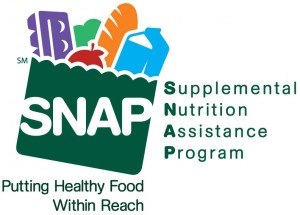 WASHINGTON, D.C. – President Barack Obama today announced new federal actions and enhancements to programs already in place to help kids in lower-income families have more access to food.
WASHINGTON, D.C. – President Barack Obama today announced new federal actions and enhancements to programs already in place to help kids in lower-income families have more access to food.
The White House said this afternoon that SNAP (Supplemental Nutrition Assistance Program) benefits lifted 4.7 million Americans out of poverty in 2014. But, the President says “hunger continues to harm children across the country” and “children … need fuel to thrive”.
These new federal programs will “ensure all low-income children have year-round access to the food they need to learn and grow.”
NEW FEDERAL ACTIONS, AS ANNOUNCED BY THE WHITE HOUSE:
The President’s FY2017 Budget will invest $12 billion over ten years to reduce child hunger during the summer through a permanent Summer Electronic Benefits Transfer for Children (Summer EBT) program to provide supplemental food benefits during the summer months for all families with children eligible for free and reduced price school meals. During the academic year, school meals help ensure consistent and adequate access to nutritious food for the nearly 22 million low-income children who receive free and reduced price school meals. However, only a fraction of these children receive free and reduced price meals when school is out of session. As a result, low-income children are at higher risk of food insecurity and poor nutrition during the summer. Summer EBT, which provides benefits on an electronic debit card that can only be used for food at the grocery store, fills the food budget gap in the summer; rigorous evaluations of USDA pilots of Summer EBT programs have found that they can significantly reduce food insecurity among children and improve their diet.
Allowing States to use Medicaid data to automatically link low-income children to school meals.
USDA will announce a new initiative to increase access to school meals for low-income children through a project that will allow interested State agencies that administer the National School Lunch Program (NSLP) to use Medicaid data to certify students for free and reduced priced lunches. This will link eligible children to nutritious school meals with less paperwork for the State, schools and families alike. Interested states are invited to submit applications and USDA expects to approve approximately five States to begin the demonstrations during the upcoming school year (2016-2017), with additional states implementing the pilot in the subsequent years. USDA is committed to helping 20 States take up this pilot and begin implementing direct certification using Medicaid data over the next three school years.
BUILDING ON RESEARCH DEMONSTRATING SNAP’S CRITICAL ROLE IN HELPING CHILDREN SUCCEED
In 2014, nearly one in seven American households experienced food insecurity, meaning that one or more household members did not have a consistent source of adequate nutritious food. Moreover, 40 percent of all food-insecure households—and nearly 6 percent of US households overall—were considered to have very low food security. This means that, in nearly seven million households, at least one person in the household missed meals and experienced disruptions in food intake due to insufficient resources for food.
A report released last month by the White House Council of Economic Advisers (CEA) found that SNAP, the largest federal food and nutrition program, plays an essential role in reducing poverty and food insecurity, and significantly improves the health and wellbeing of low-income families. In 2014 SNAP lifted at least 4.7 million Americans out of poverty, including 2.1 million children, and today helps families across the nation to put food on the table while they work to improve their economic situation. Research shows that among households who receive SNAP, food insecurity rates are up to 30 percent lower than they otherwise would be. But in spite of SNAP’s success, hunger remains a stubborn problem, in part because for many benefits are inadequate to provide enough healthful food to children and families living on a tight budget.
New research cited in the CEA report has linked diminished food budgets at the end of each month to significant consequences, including:
- A drop-off in caloric intake among SNAP recipients, with estimates of this decline ranging from 10 to 25 percent over the course of the month;
- A 27 percent increase in the rate of hospital admissions due to low blood sugar for low-income adults between the first and last week of the month;
- An 11 percent increase in the rate of disciplinary actions among school children in SNAP households between the first and last week of the month;
- Diminished student performance on standardized tests, with performance improving only gradually again after the next month’s benefits are received.








